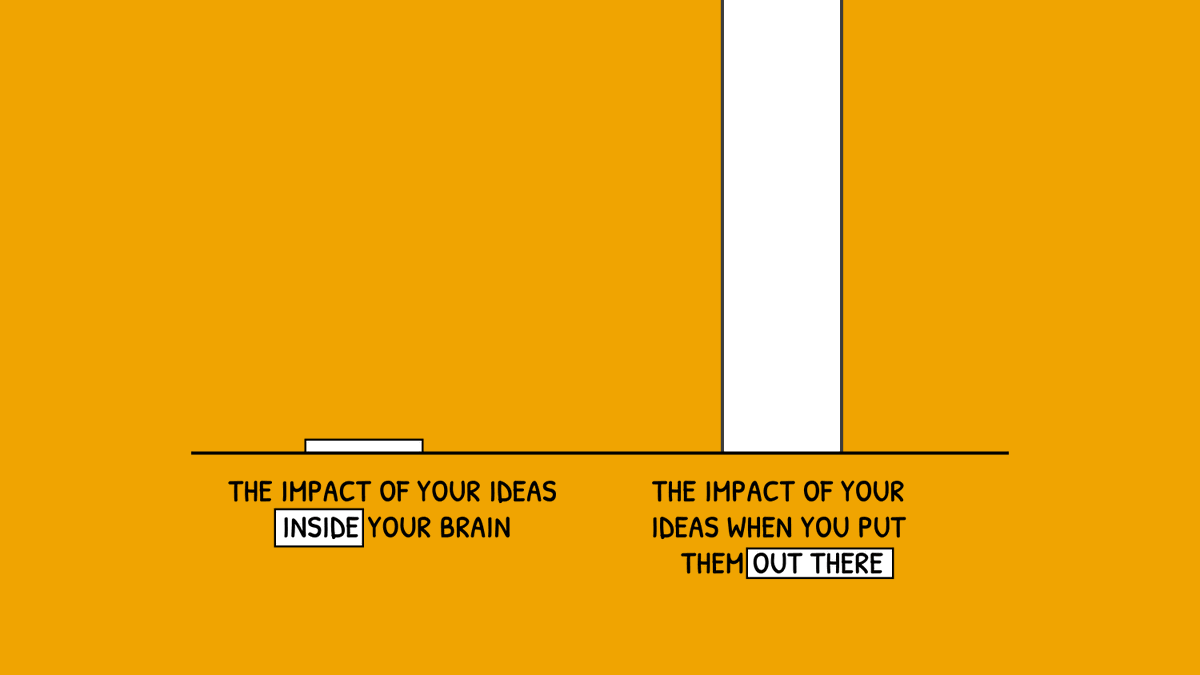
The right stuff – E-Learning Provocateur
Well that was unexpected.
When I hit the Publish button on Not our job, I braced myself for a barrage of misunderstanding and its evil twin, misrepresentation.
But it didn’t happen. On the contrary, my peers who contacted me about it were downright agreeable. (A former colleague did politely pose a comment as a disagreement, but I happened to agree with everything she stated.)
I like to think I called a spade a spade: we’re responsible for learning & development; our colleagues are responsible for performance; and if they’re willing to collaborate, we have value to add.
The post was a thought bubble that finally precipitated after one sunny day, a long time ago, when Shai Desai asked me why I thought evaluation was so underdone by the L&D profession.
My post posited one reason – essentially, the inaccessibility of the data – but there are several other reasons closer to the bone that I think are also worth crystallising.
1. We don’t know how to do it.
I’m a Science grad, so statistical method is in my blood, but most L&D pro’s are not. If they haven’t found their way here via an Education or HR degree, they’ve probably fallen into it from somewhere else à la Richard in The Beach.
Which means they don’t have a grounding in statistics, so concepts such as regression and analysis of variance are alien and intimidating.
Rather than undertake the arduous journey of learning it – or worse, screw it up – we’d rather leave it well alone.
2. We’re too busy to do it.
This is an age old excuse for not doing something, but in an era of furloughs, restructures and budget freezes, it’s all too real.
Given our client’s ever-increasing demand for output, we might be forgiven for prioritising our next deliverable over what we’ve already delivered.
3. We don’t have to do it.
And it’s a two-way street. The client’s ever-increasing demand for output also means they prioritise our next deliverable over what we’ve already delivered.
If they don’t ask for evaluation, it’s tempting to leave it in the shadows.
4. We fear the result.
Even when all the planets align – we can access the data and we’ve got the wherewithal to use it – we may have a sneaking suspicion that the outcome will be undesirable. Either no significant difference will be observed, or worse.
This fear will be exacerbated when we design a horse, but are forced by the vagaries of corporate dynamics to deliver a camel.

The purpose of this post isn’t to comment on the ethics of our profession nor lament the flaws of the corporate construct. After all, it boils down to human nature.
On the contrary, my intention is to expose the business reality for what it is so that we can do something about it.
Previously I’ve shared my idea for a Training Evaluation Officer – an expert in the science of data analysis, armed with the authority to make it happen. The role builds a bridge that connects learning & development with performance, keeping those responsible for each accountable to one another.
I was buoyed by Sue Wetherbee’s comment proposing a similar position:
…a People & Culture (HR) Analyst Business Partner who would be the one to funnel all other information to across all aspects of business input to derive “the story” for those who order it, pay for it and deliver it!
Sue, great minds think alike 😉
And I was intrigued by Ant Pugh’s Elephant In The Room in which he challenges the assumption that one learning designer should do it all:
Should we spend time doing work we don’t enjoy or excel at, when there are others better equipped?
Just because it’s the way things are, doesn’t mean it’s the way things should be.
I believe a future exists where these expectations are relinquished. A future where the end result is not dictated by our ability to master all aforementioned skills, but by our ability to specialise on those tasks we enjoy.
How that will manifest, I don’t know (although I do have some ideas).
Ant, I’m curious… is one of those ideas an evaluation specialist? Using the ADDIE model as a guide, that same person might also attend to Analysis (so a better job title might be L&D Analyst) while other specialists focus on Design, Development and Implementation.
Then e-learning developers mightn’t feel the compulsion to call themselves Learning Experience Designers, and trainers won’t be similarly shamed into euphemising their titles. Specialists such as these can have the courage to embrace their expertise and do what they do best.
And important dimensions of our work – including evaluation – won’t only be done. They’ll be done right.

